Gripe Water for Babies: Soothing Relief for Infant Colic and Digestive Discomfort.
Gripe water has been a staple in many households as a remedy for soothing babies’ discomfort caused by colic, gas, and other digestive issues. Understanding what gripe water is, how it works, and when to use it is essential for parents seeking relief for their little ones.
What is Gripe Water?
Gripe water is a liquid supplement commonly used to ease digestive discomfort in infants. It typically contains a combination of herbs, such as fennel, ginger, chamomile, and lemon balm, along with other ingredients like sodium bicarbonate and dill oil.
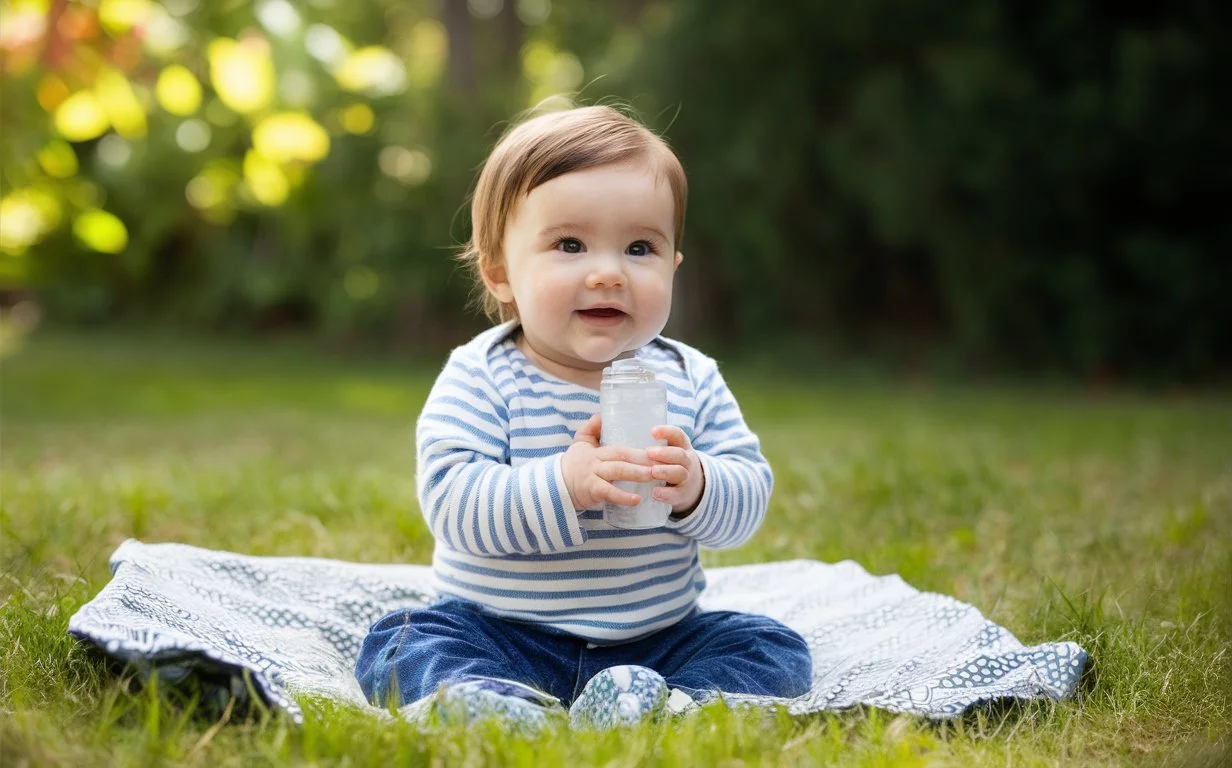
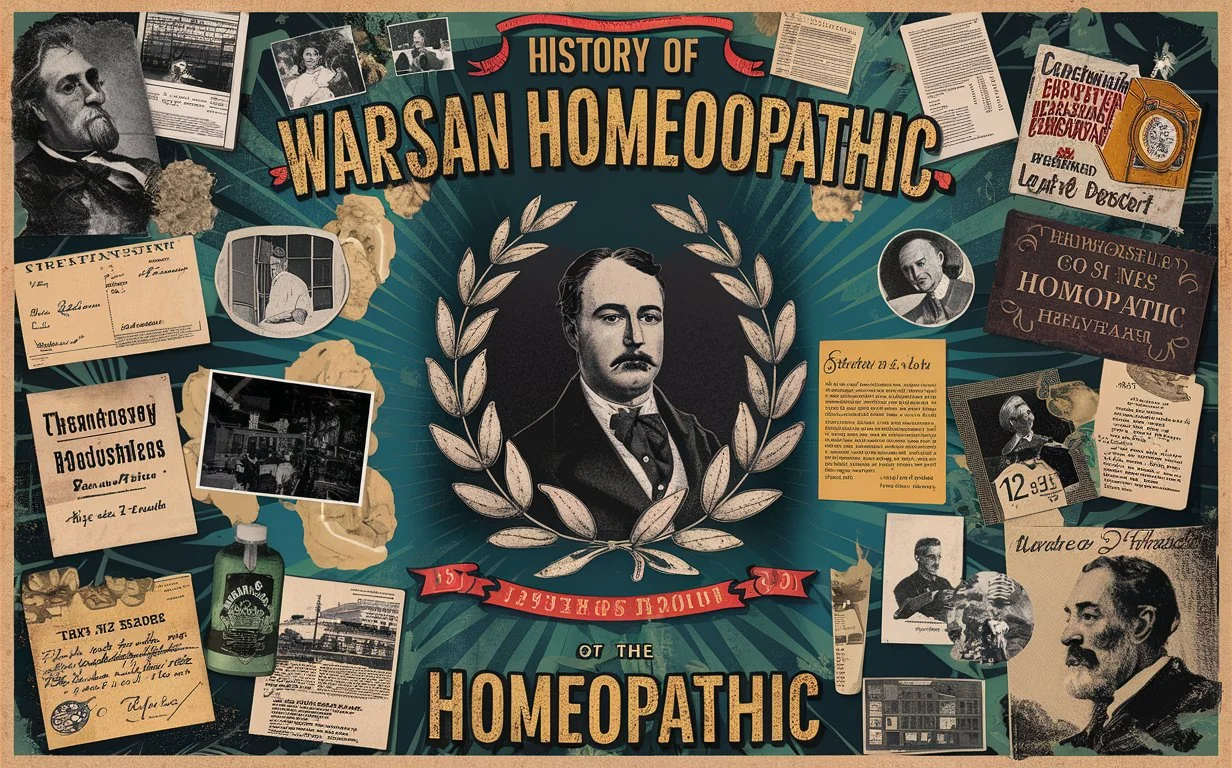
History and Origins of Gripe Water for Babies
Gripe water traces its origins back to the 19th century when it was first formulated in Europe as a treatment for infants with colic. Originally, it contained alcohol and sugar, but modern formulations are alcohol-free and may contain natural flavors to improve taste.
Composition of Gripe Water for Babies
The composition of gripe water varies depending on the brand and formulation. However, most gripe waters contain a blend of herbal extracts, soothing agents, and gentle digestives to provide relief from colic and gas.
How Does Gripe Water for Babies Work?
Mechanism of Action
Gripe water works by relaxing the muscles in the digestive tract, which can help to alleviate symptoms of colic and gas. It may also have mild sedative effects, promoting relaxation and sleep in fussy babies.
Common Ingredients and Their Effects
Ingredients like fennel and ginger are believed to have carminative properties, meaning they can help to expel gas from the digestive system. Chamomile and lemon balm may have calming effects, reducing irritability and discomfort.
Is Gripe Water for Babies, Safe?
While gripe water is generally considered safe when used as directed, it's essential to consult with a pediatrician before giving it to your baby, especially if they have underlying health conditions or are taking medications.
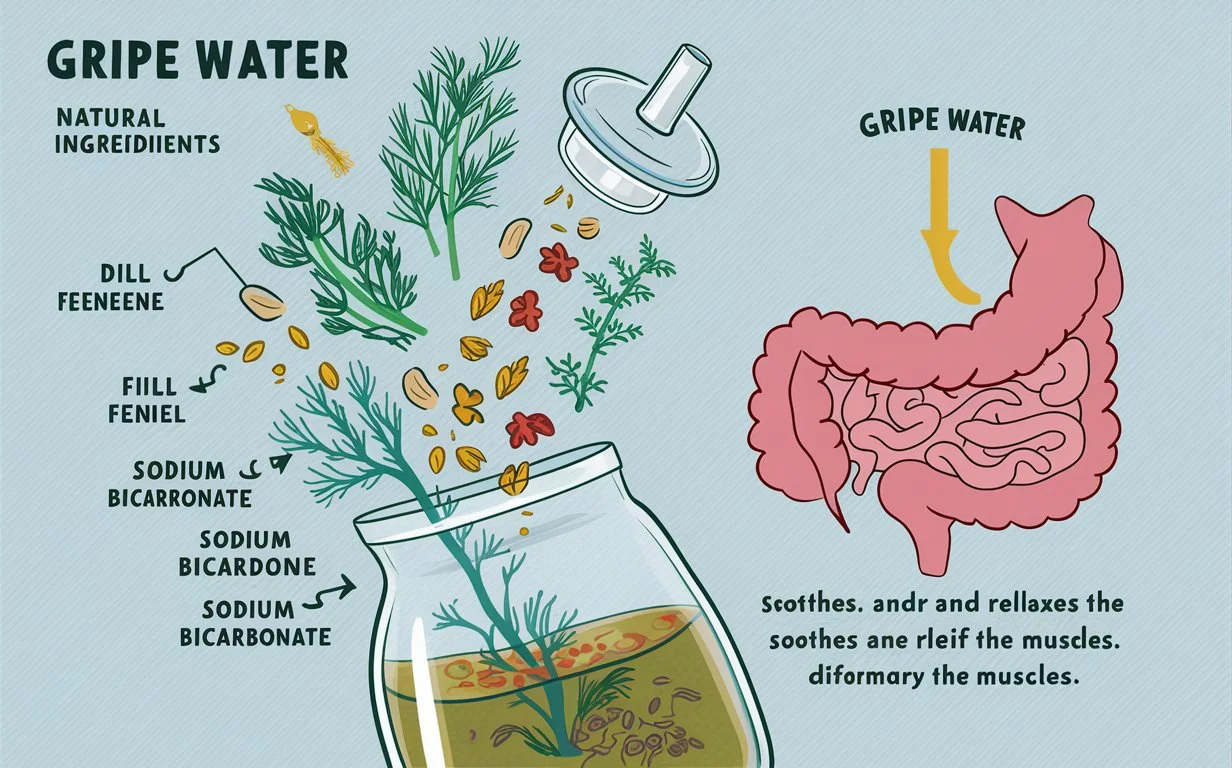
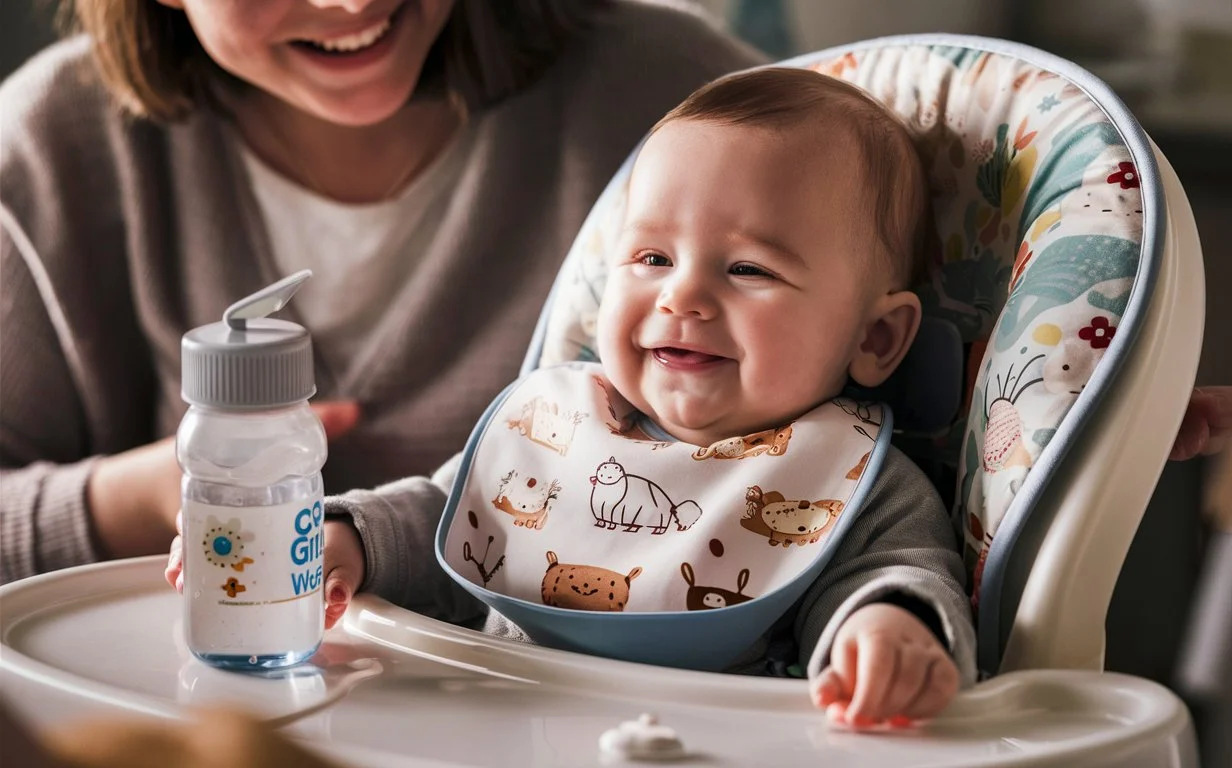
When to Use Gripe Water for Babies?
Indications for Use
Gripe water is typically used to provide relief from common digestive issues in babies, including colic, gas, and reflux. It may also be used to soothe teething pain or minor stomach upset.
Signs of Colic or Gas in Babies
Signs of colic in infants may include excessive crying, fussiness, and difficulty sleeping, often occurring in the late afternoon or evening. Gas can cause abdominal discomfort, bloating, and frequent passing of wind.
Other Uses of Gripe Water
In addition to its digestive benefits, gripe water may be used as a gentle sleep aid or calming remedy for restless babies.
Using Gripe Water for Babies Safely
Dosage Guidelines
Dosage recommendations may vary depending on the brand and formulation of gripe water. Always follow the instructions on the product label and consult with your pediatrician if you're unsure.
Administration Methods
Gripe water can be administered directly using a dropper or mixed with formula or breast milk for easier consumption.
Precautions and Contraindications
While gripe water is generally safe for most babies, it's essential to avoid giving it to premature infants or babies with certain medical conditions without first consulting a healthcare professional.


Benefits of Gripe Water for Babies
Alleviating Colic Symptoms
One of the primary benefits of gripe water is its ability to soothe colicky babies and reduce episodes of excessive crying and fussiness.
Easing Discomfort from Gas
The carminative properties of gripe water can help to relieve gas pains and bloating in infants, providing them with much-needed relief.
Promoting Relaxation and Sleep
Some parents find that gripe water helps to calm their babies and promote better sleep, making it a valuable tool for managing nighttime fussiness.
Alternatives to Gripe Water for Babies
Natural Remedies
There are several natural remedies for colic and gas in babies, including gentle massage, warm baths, and tummy time.
Over-the-Counter Medications
In some cases, over-the-counter medications like simethicone may be recommended by pediatricians to help alleviate gas and digestive discomfort in infants.
Lifestyle Changes for Colicky Babies
Adjusting feeding schedules, burping techniques, and positioning during and after feeding can also help to reduce symptoms of colic and gas in babies.

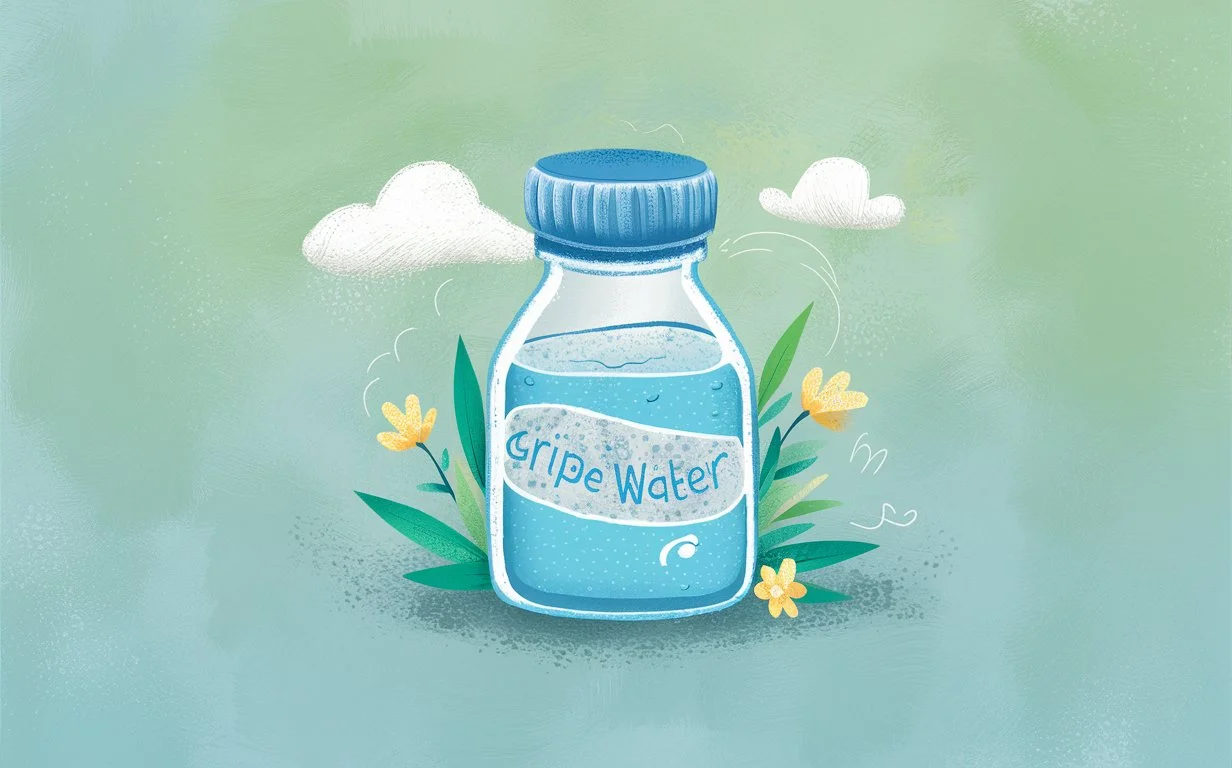
Choosing the Right Gripe Water for Babies
Factors to Consider
When selecting gripe water for your baby, consider factors such as the ingredients, formulation, and reputation of the brand.
Popular Brands and Their Differences
There are several brands of gripe water available on the market, each with its unique blend of ingredients and intended uses.
Consultation with Healthcare Professionals
If you're unsure which gripe water product is right for your baby, don't hesitate to seek guidance from your pediatrician or healthcare provider.
Potential Side Effects of Gripe Water for Babies
Allergic Reactions
While rare, some babies may experience allergic reactions to ingredients in gripe water, such as herbs or flavorings.
Digestive Disturbances
In some cases, gripe water may cause mild digestive upset, including diarrhea or constipation, particularly if given in excess.
Long-Term Effects
There's limited research on the long-term effects of gripe water use in infants, so it's essential to use it judiciously and only as needed.
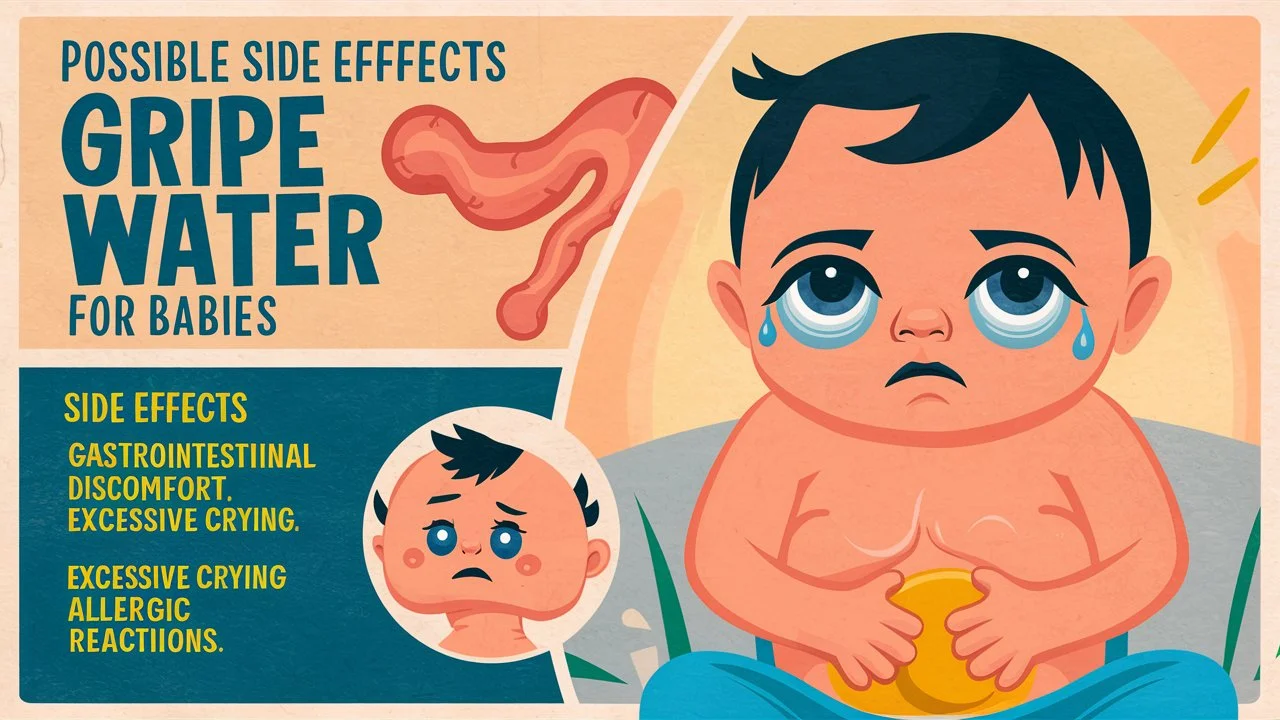

Myths and Facts About Gripe Water for Babies
Common Misconceptions
Myths about gripe water abound, including beliefs that it contains harmful ingredients or that it's a cure-all for all infant ailments.
Evidence-Based Information
Despite its long history of use, there's still debate about the effectiveness of gripe water and the mechanisms by which it works.
Debunking Myths
Separating fact from fiction when it comes to gripe water can help parents make informed decisions about its use for their babies.
Parental Experiences and Recommendations
Testimonials and Anecdotes
Many parents swear by gripe water as a lifesaver for soothing their colicky or gassy babies, sharing their success stories and tips for use.
Tips for Using Gripe Water Effectively
Administering Gripe Water for Babies before feedings or at bedtime may help to maximize its effectiveness and promote better sleep for both baby and parents.
Community Discussions and Forums
Online forums and parenting groups are excellent resources for finding support, advice, and recommendations from other parents who have used gripe water.

Choosing Premium Supplements from Warsan Homeopathic
At Warsan Homeopathic, we’re committed to providing men with premium-quality best vitamin supplements for men that address their unique health needs. Our extensive range of vitamin and herbal formulations undergoes strict quality control measures to ensure purity, potency, and safety. Whether you’re looking to support muscle health, boost cardiovascular function, enhance cognitive performance, or improve sexual vitality, we have a solution for you. With Warsan Homeopathic, you can trust that you’re investing in your health and well-being.

Conclusion
In conclusion, Gripe water for babies can be a valuable tool for parents seeking relief for their babies’ digestive discomfort. Understanding its ingredients, benefits, and potential risks is essential for using it safely and effectively. While gripe water may provide temporary relief from colic and gas, it’s essential to consult with a pediatrician if you have any concerns about your baby’s health or well-being.
FAQ's
Homeopathy can be effective for various types of pimples, but the choice of remedy depends on individual symptoms and constitution.
The timeframe for seeing results with homeopathic treatment varies from person to person. Some individuals may experience improvement within a few weeks, while others may require more extended treatment.
It's essential to consult with a healthcare professional before combining homeopathic remedies with conventional acne treatments to avoid any potential interactions.
Eating a healthy diet rich in fruits, vegetables, and whole grains can support skin health and complement homeopathic treatment for pimples.
Homeopathic remedies are generally safe for pregnant women, but it's crucial to consult with a qualified homeopath or healthcare professional before starting any new treatment during pregnancy.
